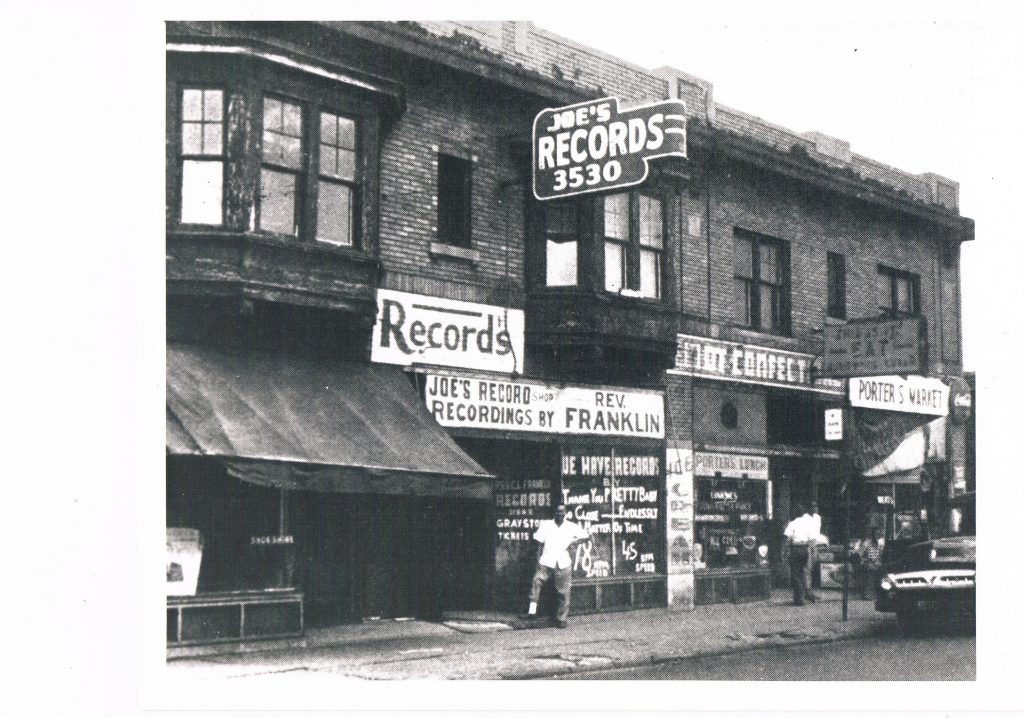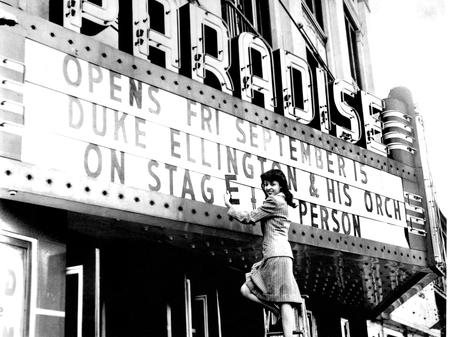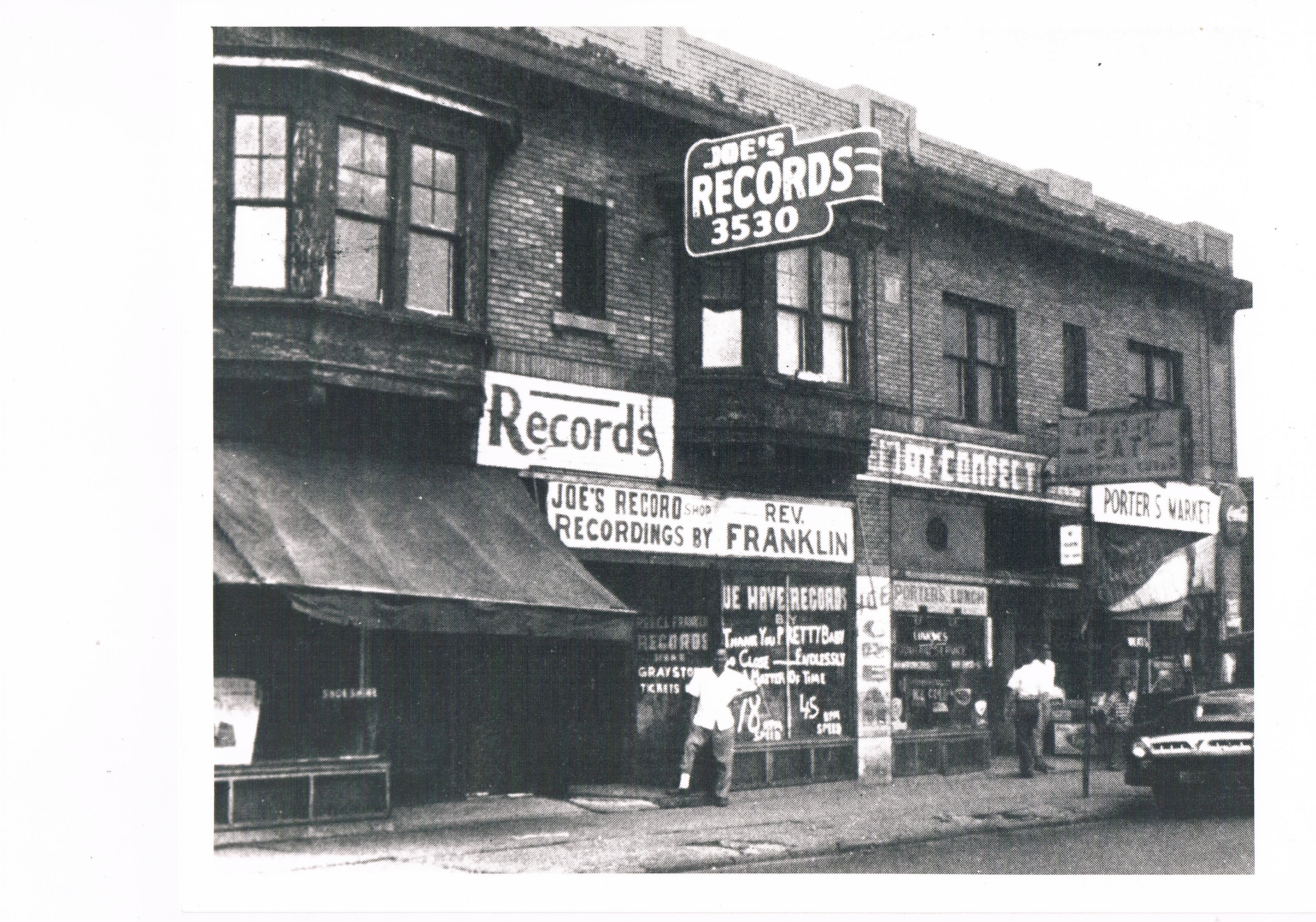Detroit Razed Black Bottom. This Composer Doesn’t Want You To Forget.
Black Bottom and Paradise Valley were razed beginning in the 1950’s to make way for I-375. The Detroit Symphony Orchestra commemorates their history in a new piece by composer Nkeiru Okoye.


Inside Orchestra Hall on a Wednesday morning in Detroit, composer Nkeiru Okoye is hearing a composition she wrote for the very first time performed by the Detroit Symphony Orchestra.
On Saturday night, the DSO will perform the world premiere of Okoye’s “Black Bottom” for its annual Classical Roots celebration — a program that dates back to 1978 with the goal of honoring the contributions of African-American composers and musicians. People of color make up less than 5 percent of conductors and classical musicians, according to the Detroit-based non-profit Sphinx Organization.
Okoye’s “Black Bottom” is inspired by a seminal event in Detroit’s history — the razing of a middle-class African-American neighborhood in the heart of the city as part of sweeping urban renewal projects across the United States.
Listen: Ryan Patrick Hooper takes you behind the scenes of the DSO’s preparation for ‘Classical Roots,’ and hear excerpts of “Black Bottom.”
A Forgotten History
“You see children smiling for these pictures, posing, and it’s eerie, because you know full well they’re looking for reasons to tear this place down.” – Nkeiru Okoye, composer

Across nine movements, Okoye explores the rich social life of the city’s Black Bottom and Paradise Valley neighborhoods — thriving African-American enclaves that met the wrecking ball to make way for the Chrysler Freeway beginning in the 1950s.
The neighborhood and its estimated 350 black-owned businesses are mostly a fading memory in aging residents’ minds today.
Okoye wanted her work to focus on the wealth of what was lost when the Black Bottom was destroyed.

“People never understand how much wealth there was within the black community. It’s easier to talk about the poverty,” says Okoye.
Okoye’s research of the Black Bottom neighborhood and the robust African-American community it housed stretched across eight months including a visit to the very neighborhood she was composing music about.
During a trip to Detroit, Okoye visited an exhibit at the Detroit Public Library called “Black Bottom Street View,” which is currently on display at Orchestra Hall in time for this new composition. It used hundreds of photos to visually recreate the streetscapes of Black Bottom, allowing visitors to walk through the exhibit like they were walking through the neighborhood itself.
A epic swath of photos were taken in 1950 by the City of Detroit, documenting the neighborhood in great detail to create the case for eminent domain, or when a government takes over private property for public use.

In a twist of irony, those very photos are being used to preserve it memory today.
“It was eerie going through this and seeing all these buildings that were once very beautiful and they had fallen into disrepair because this is the same story of urban renewal,” says Okoye. “What’s the cost of that?”
“You see children smiling for these pictures, posing, and it’s eerie, because you know full well there was never any intention to make improvements,” she says. “They’re looking for reasons to tear this place down.”
The Detroit Symphony Orchestra’s ‘Classical Roots’ performance is this Saturday, March 7, at 8:00 pm. Purchase tickets here.
Correction appended, 5:30 pm, March 7, 2020: This article originally featured an archival photo and headline that incorrectly stated the origins of the photo and intention behind it. The original photo was not taken in Black Bottom nor used to justify it’s razing. This has been corrected. 101.9 WDET regrets the error.
Support the news you love.
Here at WDET, we maintain our journalistic integrity through independent support from readers like you. Because you value WDET as your source of news, music, and conversation, please make a gift today.
